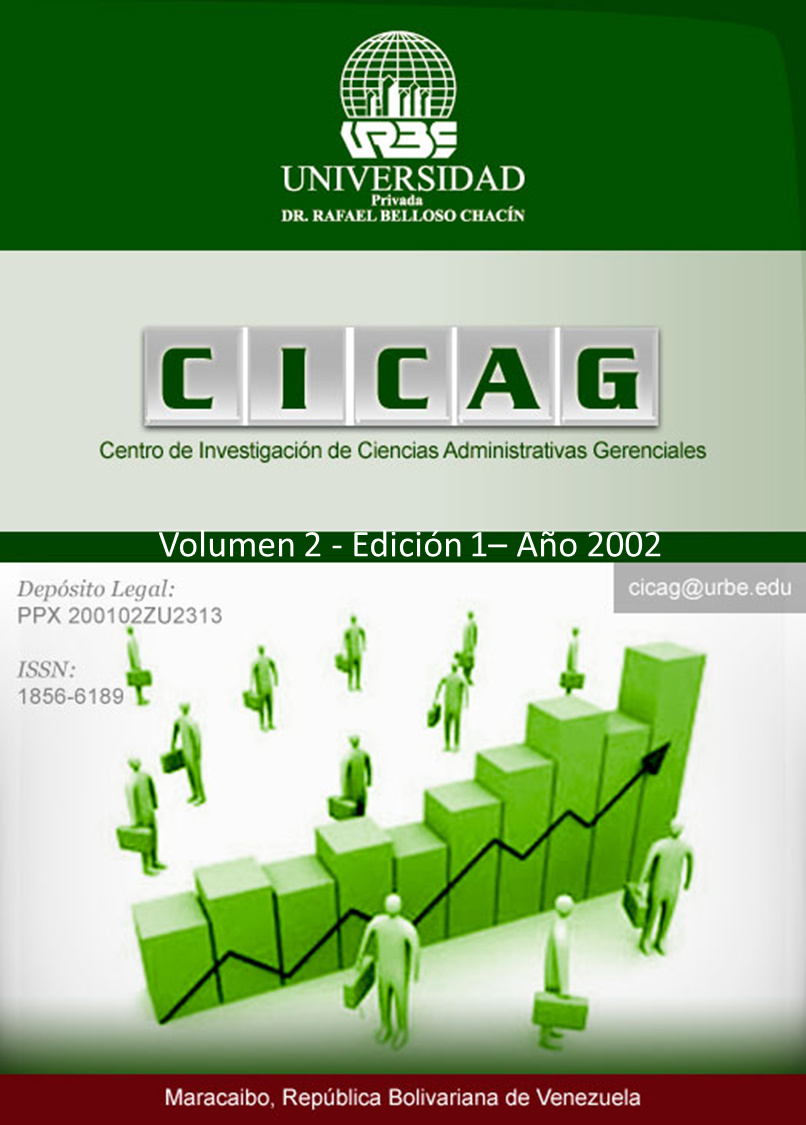LA TASA DE RETORNO COMO INDICADOR DE ANÁLISIS COSTO-BENEFICIO EN EDUCACIÓN
Resumen
Esta investigación pertenece al ámbito de la economía y las políticas públicas. Su propósito es confirmar la validez del modelo de la tasa de retorno para el análisis costo-beneficio en educación, mediante la verificación empírica en el contexto venezolano, a fin de recomendar los ajustes que se requieran y que permitan la efectiva utilización de sus resultados en el diseño de políticas educativas. Sustentado en la teoría de capital humano, se parte del supuesto que el salario es un indicador de la productividad de la mano de obra, la tasa de retorno establece una relación entre la inversión en educación y la obtención de mayores salarios. Las principales observaciones efectuadas están relacionadas a los insumos de la función y a la interpretación de sus resultados. Se concluye entonces que aplicando los ajustes necesarios, la tasa de retorno privada de la educación sigue siendo una valiosa herramienta para la toma de decisiones, tanto en lo financiero como en lo programático. A pesar de las limitaciones señaladas, se recomienda su utilización en Venezuela.
Descargas
Citas
BANCO MUNDIAL (2000) Educación - estrategia sectorial. Ed. Banco
Mundial, Washington DC.
BENNELL, P. (1996) General versus vocational secondary education in
developing countries: A review of the rates of return evidence The Journal
of Development Studies. Vol. 33, Dec 1996. University of Sussex,
London.
BLAUG, M. (1991) An introduction to the economics of education. First
reprint. Gregg Revivals. Vermont, USA.
BOWLES, S. (1969). Planning educational systems for economic growth.
Harvard University Press, Cambridge.
BRATSBERG B. & D. TERREL (2002) School quality and returns to
education of U.S. immigrants, en: Economic Inquiry Vol. 40, Apr 2002.
Huntington Beach.
CARD, D. & A. KRUEGER (1992) Does school quality matter? Returns to
education and the characteristics of public schools in the United States,
en: Journal of Political Economy, Feb 1992, v100, Nro. 1.
COCCORESE, F. y K. VALIÑO (2002) Capital humano y remuneración al
trabajo. Análisis para distintos grupos ocupacionales en Venezuela.
Universidad Católica “Andrés Bello”, Caracas.
FRAZIS, H. (2002) Human capital, signaling, and the pattern of returns to
education en: Oxford Economic Papers Vol. 54, Apr 2002. Oxford.
GILLIS, M. et al (1987) Economics of development. W.W. Norton & Company,
London.
GOLDIN, C. (1999) Egalitarianism and the returns to education during the
great transformation of American education, en:
The Journal of Political Economy. Vol. 107, Dec. 1999. University of
Chicago.
HERNANDEZ, FERNANDEZ y BAPTISTA (2001) Metodología de la
investigación. Edit. Mc Graw Hill, México.
HURTADO, J. (2000) Metodología de la investigación holística. 3° edición,
Edit. Fundación Sypal, Caracas.
HOROWITZ, A. (1999) Ranking rates of return to education: Legitimacy and
an explicit diagnostic en: Journal of Policy Modeling. Vol 21, Dec 1999.
New York .
KIDD, M. & M. SHANNON (1996) The gender wage gap: a comparison of
Australia and Canada Industrial and Labor Relations Review, July 1996,
v49, Nro. 4.
MINGAT, A. & J.-P. TAN (1988). Analytical tools for sector work in education.
The World Bank, Washington DC.
NAVAS, L. (1998) Informe de Gestión 1994-1998. Despacho del Viceministro
de Educación, Caracas. (trabajo no publicado)
PALME, M. & R. WRIGHT (1998) Changes in the rate of return to education
in Sweden: 1968-1991, en: Applied Economics, Dec 1998, v30, i12.
PRITCHETT, L. (2001) Where has all the education gone?, en: The World
Bank Economic Review Vol. 15, 2001. The World Bank, Washington DC.
PSACHAROPOULOS, G. & A. ALAM (1991). Earning and education in
Venezuela: an update from the 1987 Household Survey, en: Economics
of education review. Vol. 10, # 1, 1991. Pergamon Press, Oxford.
PSACHAROPOULOS, G. (1985). Returns to education: a further international
update and implications, en: The journal of human resources. Vol. XX, #
, 1985. University of Wisconsin, Wisconsin.
PSACHAROPOULOS, G. & R. LAYARD (1979). Human capital and earnings:
British evidence and a critique, en: The review of economics studies. July
, Nro. 144.


